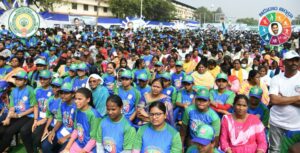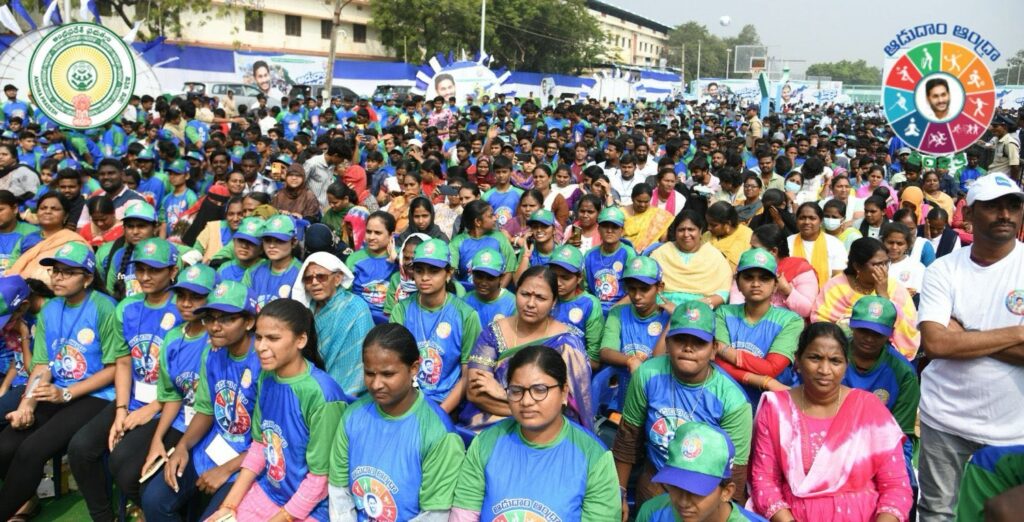
Away from the eyes of the mainstream media, the wheels of grassroots sport are cranking in many states. Better late than never. Aware that sport is a soft power not only for the country to showcase internationally, states are now beginning to contribute their own pieces to complete the larger jigsaw. And that augurs well from the long-term perspective.
Be it conducting sports competitions or building infrastructure or facilitating coaching programmes, states have now begun to lend a shoulder so that their athletes are not only better prepared for national and international competitions, but their citizens also take the right steps towards leading a healthier lifestyle.
Last month, as many as 1.22 crore players, including 52.34 lakh women, registered themselves for the Aadudam Andhra (Let’s Play, Andhra) tournament launched by the Andhra Pradesh Government. It is being held in badminton, cricket, kabaddi, kho-kho and volleyball at the gram panchayat/ward, mandal, constituency, district, and state levels.
Tamil Nadu has had the CM Trophy tournaments and Gujarat has hosted Khel Mahakumb competitions for many years now, offering not just prize money but also the opportunity to showcase innate, raw talent. Nagaland has held its own Olympic and Paralympic Games. Andhra Pradesh has followed suit, albeit in a handful of disciplines in the inaugural season.
Across the spectrum, the Odisha story of developing infrastructure, establishing high-performance training centres and hosting international events is well known. Madhya Pradesh has also established splendid infrastructure for a number of sports, including shooting, equestrian sport and water sports like sailing, canoeing and kayaking, and made its presence felt with some good shows.
In Uttar Pradesh, Kanpur Smart City Limited launched The Sportz Hub to promote indoor sports in the city. Fascinatingly, it built the infrastructure and awarded the contract to operate it for 25 years to a private organisation. It is only a matter of time before more such facilities come up across the country, creating jobs for the entire spectrum in the sports and hospitality ecosystem.
For the Latest Sports News: Click Here
Assam has facilitated the establishment of BAI Centre of Excellence for badminton in Guwahati and is coming up with a similar centre for swimming. It has taken a while for states to realise that investing in sport – beyond handing out reward money to successful athletes – can be beneficial from a public health perspective too.
Besides all this, there is a growing awareness that sport can be a good way to inculcate health in everyone’s lives. The fact that the World Health Organisation had warned of one-third of Indian population suffering from either coronary disease or diabetes in 2030 forced governments to look at preventive measures, with sport being a route to healthier lifestyle.
One other key area of concern being addressed now is the poor coaching standard at the base of the pyramid. And though some steps have been taken in this direction, much work remains to be done for coaches to understand the importance of imparting the correct fundamentals in the early stages of development of an athlete.
It is a tacit admission that the quality of domestic coaches has to improve across all levels, especially at the grassroots, but the Sports Development Authority of Tamil Nadu has taken the lead in engaging overseas coaches, Dutchman Erik Wonink for hockey and Romanian Bedros Bedrosian for horizontal jumps.
For long, the central government has handled the responsibility of raising India’s sporting standards, but now it would appear that several states are putting their hands up too, each in its own way as India progresses towards becoming a better sporting nation. The results of such collective effort may take some time to be seen, but it can only serve India well in the long run.
Things are falling in place and when all states work towards raising the bar higher – both in competition with one another and in unison – Indian sport will be the biggest beneficiary. With a larger pool of athletes at the grassroots and development level being looked after by the states, it would be easier for the centre to allocate greater resources to a larger number of elite athletes.
With the states starting to play a bigger role in the development of sport, the future can only be better. With more concerted efforts to improve coaching methods for the beginners, and to ensure impeccable technical conduct of competitions across all disciplines, the pace of evolution can be increased to deliver greater results at the international level.
Also Read: SA v IND II Kohli’s mini masterclass an object lesson in subduing the ego




